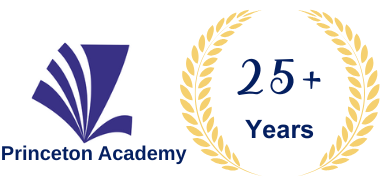Introduction
Master Conflict Resolution, Counselling skills and skilfully handle Sensitive/ Emotionally Charged Dialogues.
Whether you are delivering bad news, giving a negative performance evaluation, challenging a colleague or client, presenting options in the midst of a crisis, or simply letting people know that the direction on a certain project is changing- communicating difficult subject matter can be an emotionally charged event.
Avoiding difficult conversations or mishandling them can result in many negative consequences. This workshop is designed to help you approach difficult conversations with confidence, using a consultative approach to manage them skilfully using emotional intelligence keeping the organizations best interests in mind.
Course Objective
- Handling difficult conversations/situations
- Taking a consultative approach
- Communication with internal stakeholders anger management, getting work done, etc.
- Assertive v/s aggressive communication
Learning Outcomes
By the end of this workshop, you will be able to:
- Move from an adversarial to a collaborative approach in conflict resolution
- Initiate and conduct skilled conversations leading to behavioural change
- Understand and manage their reactive emotions
- Identify and alter unproductive conversational habits from reaction to response
- Use calming communication skills to bring upset people to the point of reason
- Use persuasion, negotiating skills and assertiveness effectively
- Develop positive language patterns
- Conduct and survive difficult proble m-solving discussions
- Manage the dynamics of effective proble m-solving, one-on-one interviews
Effective and Powerful Communication Styles
- Identifying and removing the roadblocks to effective communication
- Knowing how to positively impact the visual, verbal and vocal components of communication
- Describing the Know-Feel-Do Model of communicating
- Strategies for powerful communications and practicing them
Listening Skills
- Active and Passive listening
- Remaining focussed
- Interruptions
- Giving and getting feedback
- Asking questions and Repetition
Body Language
- Becoming Aware of Your Signals
- Facial expressions, hand and head movements
- Communicating with a Confident posture
- Involuntary movements
- Posturing
- Practicing in the Mirror
Conflict Resolution
- The first few minutes
- Our default style
- Conflict management styles
- Opening lines
- Practical issues
Increasing Your Impact
- Body language
- Getting it on the table
- Agreeing on the issue / problem
- Key interpersonal skills
Emotional Intelligence in Interpersonal Communication
- Fight or flee response
- Controlling your response
- Controlling your emotional brain
- Understanding and labelling ones own emotions
- Expressing ones view in a way that will not upset others
- Listen to others points without judgment
Giving Unwelcome Messages
- Four stages of the conversation
- Managing expectations
- Asking someone to change behaviour
- Avoiding the blame game
Consultative Communication
- Preparation and objectives
- Different viewpoints an perspectives
- Clarifying your views
- Understanding others view point in a neutral way
Assertiveness
- Assess Personal Areas for Improvement Related to Assertiveness
- Define Assertiveness
- Identify Characteristics and Behaviors Associated with Assertive Individuals
- Distinguish Among the 3 Behavioral Styles: Passive, Assertive, Aggressive
Princeton Academy resource https://princetonacademy.in/resources/
COURSE SCHEDULE & FEES
DOWNLOAD COURSE CONTENTS
Please click the button below to download the course content. You'll need to provide your contact information to receive the document.
REQUEST MORE INFORMATION
Please fill out the form below to request more information about this course.
Error: Contact form not found.
